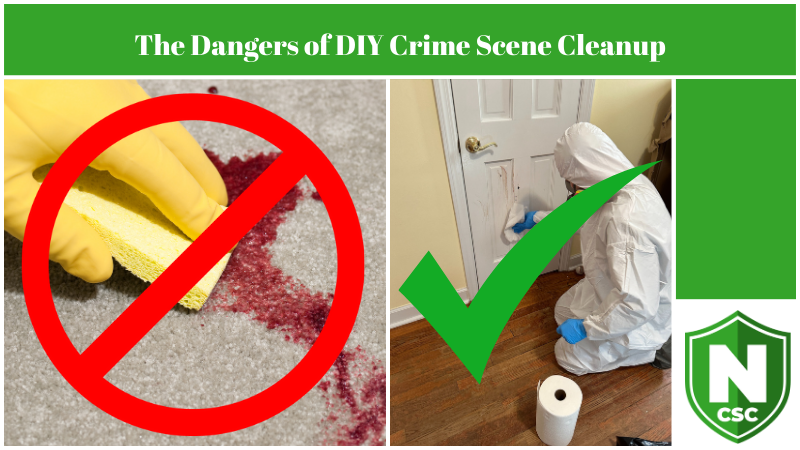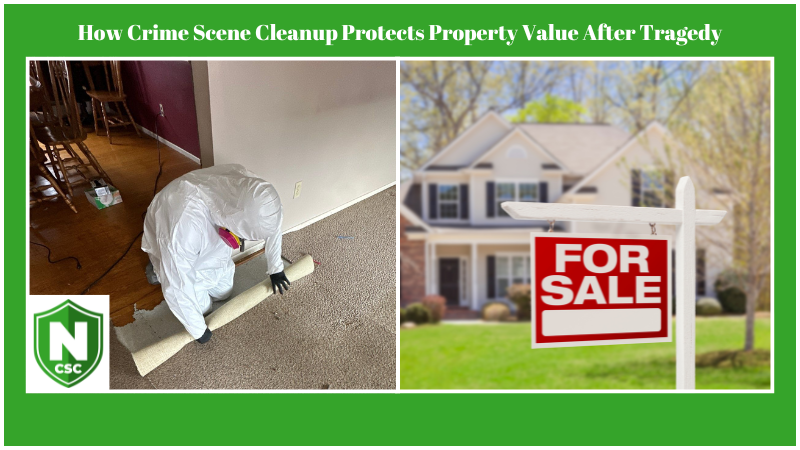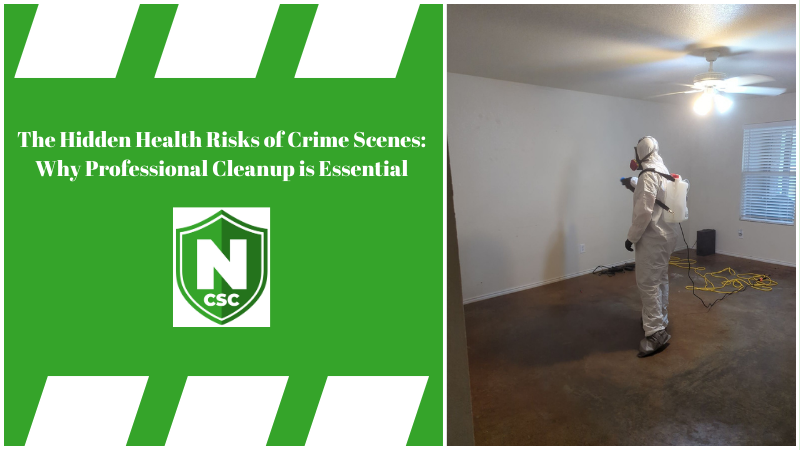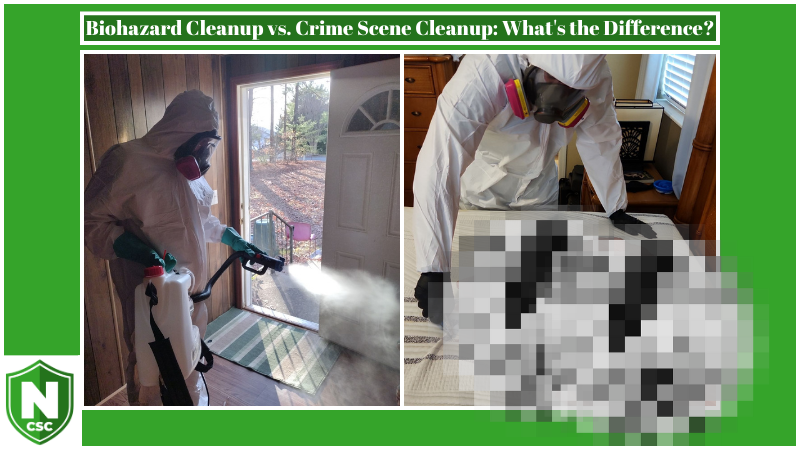The Dangers of DIY Crime Scene Cleanup

Cleaning up a crime scene is a task that should never be taken lightly. While it might be tempting to handle the cleanup yourself, especially in an attempt to save money or maintain privacy, the dangers of DIY crime scene cleanup far outweigh any potential benefits. From exposure to hazardous materials and biohazards to the psychological toll it can take, attempting to clean a crime scene without professional help can lead to serious health risks and legal consequences. In this blog, we will explore the significant dangers and risks associated with DIY crime scene cleanup and why it is always best to leave this job to trained professionals.
Understanding the Risks of DIY Crime Scene Cleanup
When a crime occurs, the aftermath can be traumatic and overwhelming. While the natural instinct may be to clean up the scene yourself, it’s crucial to understand the significant risks involved. There are three main risks associated DIY crime scene cleanup:
- Health Risks
- Improper cleaning or disposal
- Emotional Trauma
- Legal Implications
Crime scenes often contain biohazardous materials, such as blood, bodily fluids, and other potentially infectious substances. Exposure to these materials can pose serious health risks, including the transmission of bloodborne pathogens like HIV, hepatitis B, and hepatitis C. Improper handling or disposal of these hazardous materials can also lead to environmental contamination, putting others at risk.
In addition to the biological hazards, crime scenes may also contain sharp objects, broken glass, and other physical dangers that can cause injury if not handled with the proper safety equipment and procedures. Attempting to clean up these hazards without the right training and tools can put an individual’s well-being in jeopardy.
Furthermore, crime scene cleanup requires specialized knowledge and techniques to ensure that all traces of the incident are properly removed and the area is thoroughly disinfected. DIY efforts may leave behind invisible contaminants that can pose ongoing risks to the occupants of the space.
For these reasons, it is strongly recommended that individuals refrain from attempting to clean up a crime scene themselves. Instead, it is best to contact professional crime scene cleanup services that have the expertise, equipment, and protocols in place to safely and effectively handle the situation.
1. Health Risks: Exposure To Bloodborne Pathogens and Biohazards
Bloodborne pathogens and biohazards pose serious health risks if one is exposed to a crime scene. Crime scenes, by their very nature, often contain bodily fluids and other potentially infectious materials. These biohazards must be treated with the utmost care to prevent the spread of deadly diseases. Exposure can occur through direct contact with contaminated surfaces, inhalation of aerosolized particles, or accidental needlesticks.
Bloodborne diseases can be transmitted through contact with contaminated blood, bodily fluids, or sharps at a crime scene. Hepatitis B and C, as well as HIV, are among the most dangerous pathogens that may be present. Improper handling or lack of proper protective equipment can lead to accidental infection.
Thorough training, the use of personal protective equipment (PPE), and strict adherence to safety protocols are essential for anyone involved in crime scene cleanup. Proper decontamination, disinfection, and waste management procedures must be followed to mitigate the risks and protect the health and well-being of those on the scene.
2. Improper Cleaning or Disposal: The Dangers You Need to Know
Improper handling of biohazardous materials can have severe environmental and health consequences. One of the primary concerns is the potential for contamination. Like we discussed earlier, biohazardous waste, such as blood, bodily fluids, or contaminated materials, can harbor harmful pathogens that can spread disease if not disposed of properly.
Additionally, the environmental impact of crime scene cleanup can be significant. Improper disposal of chemicals, solvents, or other hazardous materials used in the cleaning process can pollute the air, soil, and water sources, causing long-term damage to the surrounding area.
Responsible biohazard disposal is not just a matter of legal compliance; it’s a moral obligation to protect the wellbeing of our planet and its inhabitants. By adhering to the proper protocols, we can minimize the environmental impact and ensure a safer, healthier future for all.
3. Emotional Trauma & Psychological Toll
Crime scenes can have a significant psychological impact on those involved in the cleanup process. Exposure to the emotional and physical aftermath of a traumatic event can lead to post-traumatic stress disorder (PTSD), anxiety, depression, and other mental health issues.
The emotional impact of witnessing or participating in crime scene cleanup should not be underestimated. Cleaning up blood, debris, and other remnants of a traumatic incident can be deeply distressing and trigger intense feelings of grief, fear, and helplessness. This can have long-lasting effects on an individual’s mental well-being.
While crime scene cleaners go through their own share of trauma they have a professional approach that comes from years of experience. This is certainly something you don’t want to put yourself through especially if the victim is a loved one.
4. Legal Implications
When it comes to a crime scene, it’s crucial to understand the legal and ethical concerns surrounding DIY crime scene cleanup.
Legally, improperly cleaning up a crime scene can interfere with evidence collection and the judicial process. Homeowners or businesses may be held liable for contaminating a crime scene or failing to follow proper protocols. This can lead to fines, lawsuits, and other legal consequences.
From an ethical standpoint, DIY crime scene cleanup raises issues around the safe and respectful handling of human remains, biohazards, and traumatic materials. Improper cleanup can expose cleanup crews and the public to serious health and safety risks. It also shows a lack of regard for the dignity of victims and the investigative process.
Call National Crime Scene Cleanup
When dealing with a crime scene, prioritize safety and leave the cleanup to the experts. Attempting to clean up the area yourself can be extremely dangerous, as you may be exposed to biohazards, blood-borne pathogens, and other hazardous materials. In addition you will also save yourself from emotional trauma and legal ramifications.
The best thing to do before you call us is to secure the area and contact law enforcement services. Next you want to protect yourself, document the scene, get in touch with your insurance comapny and then call National Crime Scene Cleanup at 1-844-263-1522
Our experts have the knowledge, tools, and protocols to decontaminate the space safely and dispose of hazardous materials correctly. Trying to cut corners or do it yourself simply isn’t worth the dangers involved.




